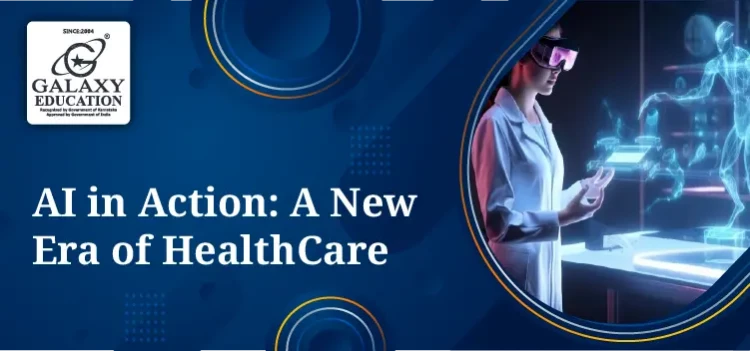How is AI Revolutionizing Healthcare?
AI is not an idea of something that could be about in the future. It is definitely a strong force shaping our world today. From smart assistants on our phone, self-driving cars and almost everything else we use today are the real-life applications of AI. That is why AI has become so popular all over the world because it can process a larger amount of data compared to humans, learn from patterns and make decisions much faster than the human brain. As a result, these skills are now being applied in almost every industry, including the healthcare sector where AI has brought in some remarkable changes.
What is The Future of Healthcare?
Advances in technology can really transform healthcare, and medical services will be better available and personalized. Patient care will be completely different because telemedicine, AI, wearable health devices, and big data are now on the trend. Upgrades in these areas enable patients to have rapid diagnosis, initially made through remote consultations, and then AI-driven diagnostics. Wearable health-tech will also allow continuous monitoring of various vital signs.
The healthcare industries now also appear to focus more on preventive care and wellness. Preventive health care reduces the occurrence of chronic diseases and focuses on a better approach to overall health, surrounding physical, mental, and social well-being. As health care continues to advance, professionals with training in the latest medical practices will be in even greater demand. Students enrolling in top medical colleges in Bangalore will have a better career scope and contribute to this dynamic field thereby ensuring a better healthcare outcome for every person and community.
The Role of AI in Healthcare
AI is changing health care in ways we could never imagine and assisting doctors quickly and with a much greater level of accuracy in diagnosing diseases through careful analysis of medical records, scans and even common data. For example, AI tools such as Google’s DeepMind analyze retinal scans to discover early signs of eye disease. These AI tools also help in analyzing medical images, including X-rays, for early signs of a particular condition like cancer or heart disease, often identifying things that the human eye might miss. These technologies not just save time but also allow for more personalized treatments that can be provided to patients so they can get the best care.
With predictive analytics, another way AI is changing healthcare. It can predict future health problems by studying patient data, and doctors can take a step before these develop. Thus, for instance, the wearable, a kind of fitness tracker or smartwatches, can track a heart rate and activity and has an alert to warn the user of anything out of place, such as an irregular heartbeat. These kinds of warning systems can help doctors take a step before anything serious, such as a heart attack or stroke.
What are the Benefits of AI in Healthcare
AI is changing healthcare in incredible ways and brings along a load of benefits that transform patients' treatment methods and changed medical practices in healthcare systems. Let’s explore into a couple of them:
-
Accurate Diagnoses:
AI-based algorithms can read medical images and data with a great level of accuracy, marking out even the minutest details that even sharp doctors might miss. It thus reduces human error and ensures more accurate diagnoses.
-
Quicker Diagnosis and Treatment:
AI can decode test reports and medical data in just minutes which helps in quicker diagnosis and faster treatment prescriptions. In emergency conditions, it is important as every second counts.
-
Tailored Treatment Plans:
AI provides customized treatment to patients based on their healthcare background, genetics, and lifestyle data. Hence, patients benefit from the personal needs of being treated according to those specific requirements.
-
Preventive Health Care
One predictive aspect of AI is the prediction of health risks based on data trends, where a doctor can make preventive actions prior to the onset of major problems.
Conclusion
In summary, AI will create the way for health care for a new generation in which technology and medicine can combine perfectly to provide better and smarter care even more rapidly. Currently, the benefits of AI, ranging from disease detection and easy patient monitoring to more effective treatment and real-time symptom detection, are already improving the industry and people's lives. But certainly, this is only the starting phase, and with further exploration of its development, AI will play a more significant role in making healthcare more efficient, accessible, and effective for everyone.

